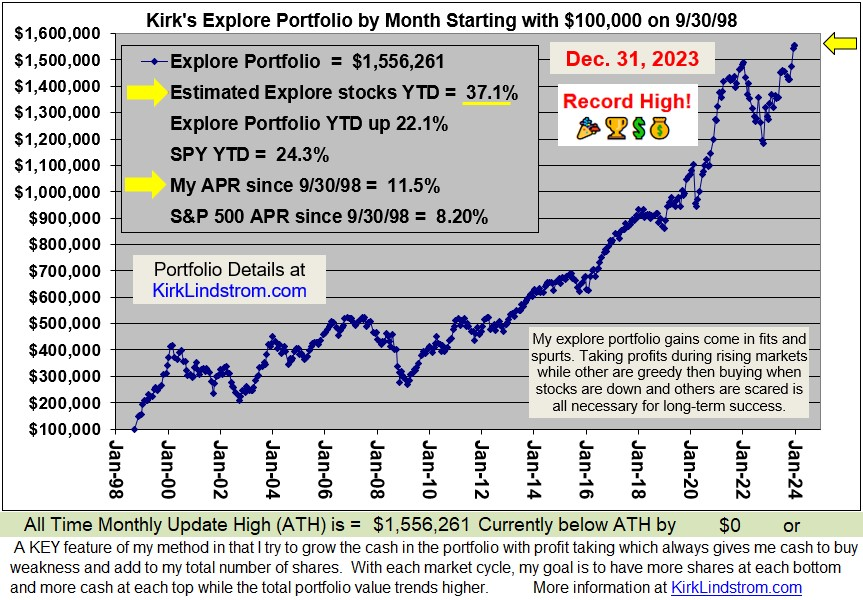S&P500 Chart
Last Market High 10/11/07 at 1,576.09=>This means the decline from intraday high to intraday low is 28.1% and we are currently 20.4% off the peak.
Last Market low 09/18/08 at 1,133.50
Current S&P500 Price 1,255.08
Decline in Points = 321.01
Decline in percent = 20.4%
Max Decline = 28.1%
=>The decline in the S&P500 from the closing high to the closing low was 26.1%
DJIA Charts
Last Market High 10/11/07 at 14,279.96
Last Market Low 09/18/08 at 10,403.75
Current DJIA Price 11,388.44
Decline in Points = 2,891.52
Decline in percent = 20.2%
Max Decline = 27.1%
=>This means the decline from high to low has been 27.1% and we are currently 20.2% off the peak.
=>The decline in the DOW off the closing high to the closing low was 25.1%
NASDAQ Charts
Last Market High 10/31/07 at 2,861.51=>This means the decline from intraday high to intraday low is 27.7% and we are currently 0.205349623 20.5% off the peak.
Last Market Low 09/18/08 at 2,070.22
Current NASDAQ Price 2,273.90
Decline in Points = 587.61
Decline in percent = 20.5%
Max Decline = 27.7%
=>The decline in the NASDAQ off the closing high to the closing low was 26.6%
I was a buyer Wednesday, Thursday and Friday. To learn what I bought for my newsletter explore portfolio, subscribe now!





Wouldn't it stand to reason that the index decline would have been worse (not that 20% isn't bad enough) if various financials had not been removed? e.g. FNM FRE LEH
ReplyDeleteIn other words, when you remove LEH and add in OXY you lend support to the S&P?
Duane
ReplyDeleteThe S&P500 is a capitalization weighted index.
LEH is worth zero and FNM and FRE lost over 95% of their value.
Yahoo Charts
Lets say the combined total was worth 10% of the S&P500. If you had $1,000 of S&P500 then $100 would be in FNM, FRE and LEH. After a 95% loss, there would only be $5 left so the S&P500 would be worth $1000-$95=$905.
If that total in FNM, FRE and LEH were to double, then it would be worth $910, a gain of only 0.55%.
FNM, FRE and LEH were worth much less than 10% of the S&P500 at the top and they have fallen about 99% so the effect of a double is more like $990.00 going up 50 cents.... noise.
BTW, one "problem" with using the S&P500 index rather than the Wilshire5000 index is you automatically "buy high and sell low" with the S&P500. Stocks like Lehman, Worldcom, Enron, Lucent etc. are taken out of the index after they go under or become penny stocks and they are replaced by the a stock that is next on the market capitalization list.
ReplyDeleteAt least with the Wilshire5000, you can enjoy the gains when #5000 on the list grows to be large enough to join the S&P500. Over the very long term, they provide similar returns which I think is due to the higher dividend of the S&P500 making up for this "buy high, sell low" effect.
hey kirk, ever heard of infinite banking? something people do with whole life policies?? I can't get my head around it, so I won't do it, but wondered what you thought.
ReplyDeletekriegski@yahoo.com
Hi Mike. If you have to look-up what some investment means in Wikipedia, my red warning lights flash. When you said it was some special sauce to help stomach "whole life" I heard all I needed.... It sounds like you did the wise thing.
ReplyDeleteWho tried to SELL you on this idea and what was in it for them?
The ONLY life insurance I would buy is term life to protect dependents should you die. You want enough to let your spouse or significant other continue as they are while providing for a college education for your dependents. Once the kids are past college age, there is no reason for term life unless your spouse or SO is a "stay-at-home" who's "job" is to take care of you. You don't want someone you love forced to look for a new "job" at low pay because you died before they did.
Make your own whole life policy by investing what the insurance company charges in a term policy then invest the remainder in the Conservative Core Portfolio in my newsletter and you will probably come out way ahead.